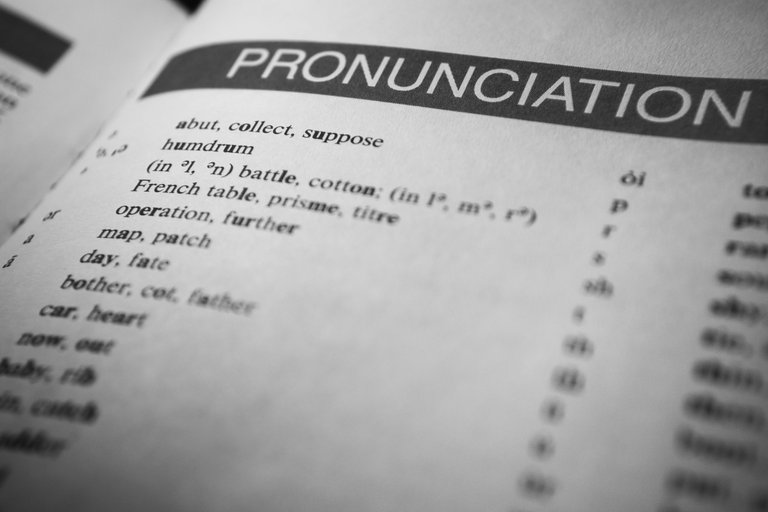English, oh English! The global language of business, entertainment, and confusion for those of us who didn't grow up with it as our first language. Much like navigating a labyrinth blindfolded, studying English as an L2 (second language) can be a comedy of errors, misunderstandings, and linguistic mishaps.
Just like in math class, where numbers dance around like mischievous sprites, English words have a mind of their own. They seem to follow rules but then gleefully break them, leaving us non-native speakers befuddled and bemused.
The Pronunciation Puzzle
English pronunciation is like a secret code that only native speakers were given at birth. It's as if words conspire to confuse us, with 'cough,' 'bough,' 'tough,' and 'through' all sounding like they're in a secret club, leaving us scratching our heads.
I once tried to pronounce "colonel" as it's spelled - "co-lo-nel." My friends still haven't stopped laughing.
Grammar Gaffes Galore
Let's not even start on grammar. The verb tense rules in English are like a labyrinth with invisible walls. You think you've got it, and then, wham! You've just mixed up past perfect continuous with present perfect continuous, and your sentence is a linguistic rollercoaster.
I once wrote, "I have been knowing her for five years," and my English teacher looked at me like I had just discovered a new species of unicorn.
The Homophone Hilarity
Homophones are like the mischievous twins of the English language. Words like 'there,' 'their,' and 'they're' or 'your' and 'you're' can turn a simple sentence into a comedy sketch. You try to use them correctly, but your brain decides it's the perfect moment for a mix-up.
I once texted, "Your so nice," and the response I got was, "My what is nice?"
Idioms and Their Ironic Antics
Idioms are like the inside jokes of a language, and as a non-native speaker, you're perpetually on the outside looking in. You might think "it's raining cats and dogs" means there's a pet apocalypse happening outside, and "barking up the wrong tree" implies a squirrel has stolen your ladder.
I once told my boss, "I'll give it my best shot, but I'm afraid I might hit the ceiling." He just stared at me, probably picturing me playing basketball in the office.
The Great Spelling Spectacle
English spelling is a mystery wrapped in an enigma, then wrapped in a paradox. You learn 'i' before 'e,' except after 'c,' unless it's on a 'weird' Wednesday, and you're 'seizing' the 'zeitgeist.' It's like trying to solve a crossword puzzle where half the clues are missing.
I once spelled 'knife' as 'k-n-i-p-h.' It was like I had added a secret level of challenge to Hangman.
In conclusion, studying English as an L2 is like trying to juggle flaming swords while riding a unicycle on a tightrope over a pit of alligators. It's a wild, often comical ride filled with linguistic pratfalls and hilarious misunderstandings. But hey, if you can laugh at your language mishaps, you're already fluent in the most important language of all: humor.

Hey @easybliss thanks for a highly entertaining post. I'm actually an EFL teacher in Japan, so the problems you describe are familiar to me. This one made me laugh, though, for a very specific reason - not sure if you are aware of it already...
The first thing I thought of when I read this is that your teacher's reaction might have been because "I've been knowing her for five years" could be interpreted as "I've been sleeping with her for five years..." It comes from the use of "know" in the King James Bible to mean "slept with" and is often used humourously as in, "I've known her for a while, but not in the Biblical sense." See https://en.wiktionary.org/wiki/know_someone_in_the_biblical_sense
!CTP
!ALIVE
@easybliss! You Are Alive so I just staked 0.1 $ALIVE to your account on behalf of @ hirohurl. (4/10)
The tip has been paid for by the We Are Alive Tribe through the earnings on @alive.chat, feel free to swing by our daily chat any time you want, plus you can win Hive Power (2x 50 HP) and Alive Power (2x 500 AP) delegations (4 weeks), and Ecency Points (4x 50 EP), in our chat every day.

English get as e be oo. The truth is that it's not our tongue, neither is it our dialect. Infact, English is chamelous in nature. Slight mistake, laughter everywhere